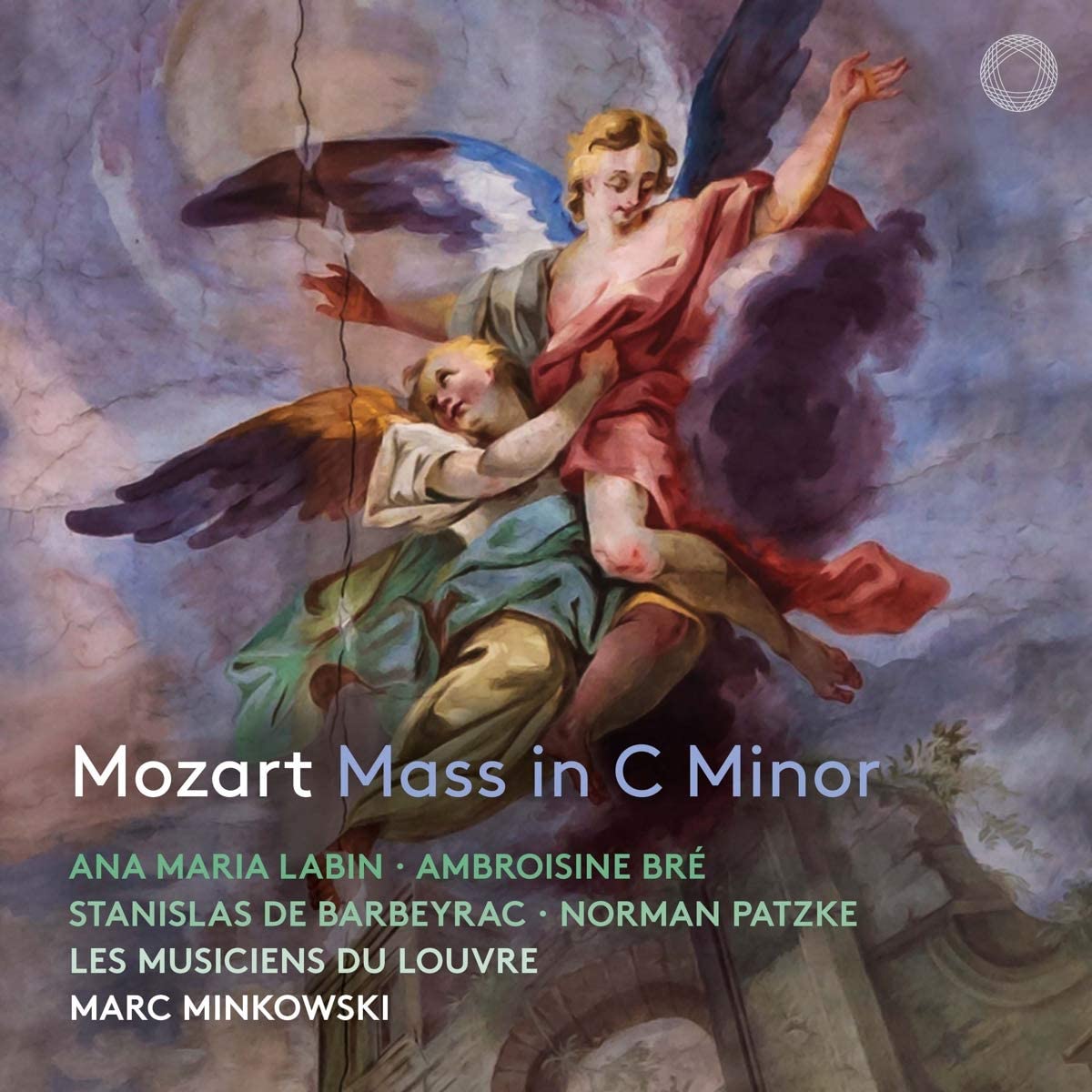MOZART Mass in C minor (Minkowski)
View record and artist detailsRecord and Artist Details
Genre:
Vocal
Label: Pentatone
Magazine Review Date: 09/2020
Media Format: CD or Download
Media Runtime: 48
Mastering:
DDD
Catalogue Number: PTC5186 812

Tracks:
| Composition | Artist Credit |
|---|---|
| Mass No. 18, 'Great' |
Wolfgang Amadeus Mozart, Composer
(Les) Musiciens du Louvre Ambroisine Bré, Mezzo soprano Ana Maria Labin, Soprano Marc Minkowski, Conductor Norman Patzke, Baritone Stanislas de Barbeyrac, Tenor |
Author: David Threasher
Among all his sacred works, Mozart’s grand C minor Mass is perhaps the most challenging for performers. By some way his largest and most complex piece of church music, it calls not only for a pair of sopranos with spotless and complementary coloratura techniques but also for a choir that must divide in places into five and eight parts.
Marc Minkowski picks up this gauntlet not by boosting the numbers of his choristers but by slimming them down to the bare minimum – three sopranos and pairs of altos, tenors and basses. This gives a markedly different complexion, for example, to the monumental eight-part ‘Qui tollis’ and ‘Hosanna’ choruses: hearing them performed, in effect, by two opposing quartets of soloists rather than by massed forces shines a new and revealing light on the choral aspect of the work. As recorded, these minimal vocal resources balance well with the orchestra, manifesting an audible sense of line and clarifying the counterpoint that pervades the work.
Then there is the problem posed by the Mass’s incomplete state. For the Sanctus and Benedictus, reconstruction is a matter of rearranging the jots and tittles – grist to the musicologist but making little difference to the listener. The Credo, on the other hand, remained uncomposed from the ‘Crucifixus’ onwards, and the two extant movements are only scantily orchestrated. The chosen edition, by Helmut Eder, makes no attempt to provide music for the missing sections but fills out the orchestration of the ‘Credo in unum Deum’ and ‘Et incarnatus est’. Eder doesn’t add trumpets and drums to the first of these, leaving it sounding a touch thin – others deem these instruments obligatory in such a celebratory movement. On the other hand, his ‘Incarnatus’, gently warmed with added horns, is marred only by over-fussy string parts that pull focus from the magical combination of soprano with solo flute, oboe and bassoon. Nevertheless, this is an established performance option and has a number of adherents on disc.
The Sunday Times has already made this recording its Album of the Week but a couple of post-production issues preclude a similar recommendation from these quarters. A misjudged edit ejects half a bar from the ‘Gloria in excelsis Deo’ towards the end, while, more alarmingly still, an audible glitch cuts a fraction of a second from bar 37 of the ‘Qui tollis’, following which the sound picture opens out appreciably and suddenly. There’s enough of the Mass missing without cutting it down any further!
The recording was made ‘in connection with live performances’, and a couple of stage noises bookend the soprano solo in the Kyrie. These lacunae tarnish what is clearly a noteworthy project and a recording that, on its own terms, would demand consideration among the best of the rest.
Discover the world's largest classical music catalogue with Presto Music.

Gramophone Digital Club
- Digital Edition
- Digital Archive
- Reviews Database
- Full website access
From £8.75 / month
Subscribe
Gramophone Full Club
- Print Edition
- Digital Edition
- Digital Archive
- Reviews Database
- Full website access
From £11.00 / month
Subscribe
If you are a library, university or other organisation that would be interested in an institutional subscription to Gramophone please click here for further information.




